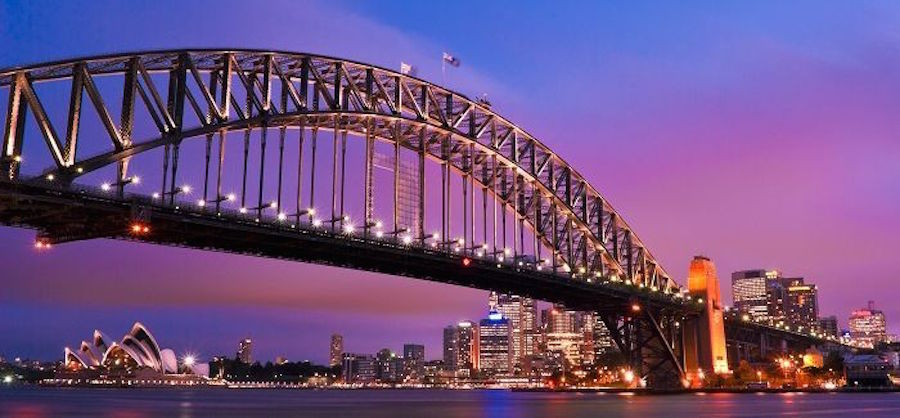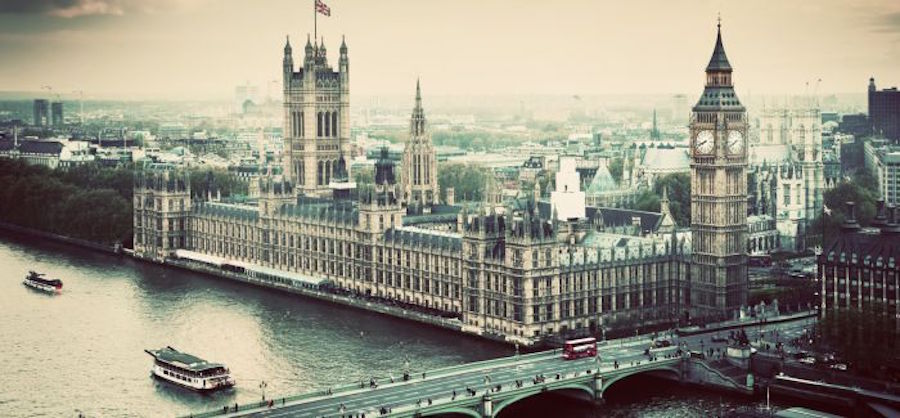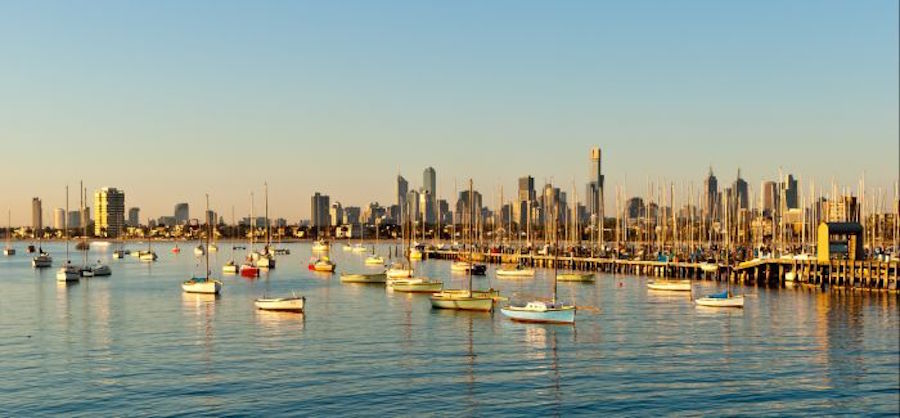What makes a great student city?
A whole mixture of things, including well-reputed universities, quality of life, employment prospects, a vibrant student community, and of course affordability.
10. Seoul
Long since labelled as an up-and-coming Asian city, Seoul is South Korea’s capital and one of its most exciting study destinations. In the QS Best Student Cities 2015, Seoul has climbed a total of four places, nudging into the world’s top 10 cities for students.
From our partners:
The city’s continual improvement comes from its high scores in a number of indicators, most notably in the “employer activity” category, which reflects the reputation of universities in Seoul amongst domestic and international employers. The city also scores brilliantly within the “university rankings” category, gaining the highest score in the top 10 outside of Paris and London. This score is explained by the impressive fact that there are 14 universities in Seoul that feature within the QS World University Rankings® 2014/15, the highest ranked of which is Seoul National University, at 31st in the world.
But it’s not all about superb rankings and reputation. Seoul is a 24/7 city in which things are never dull. Whether it’s the sounds of night-market sellers, the atmosphere of the all-night tea houses or the cries of gamers at a ‘PC bang’ (gaming center), Seoul is as alive at 3am as it is at 5pm. The magic of this city is that boredom is an impossibility, with culture, history and creativity anywhere you turn.
For some down-time from your studies, Seoul offers many opportunities to find your inner Zen, whether at one of many Buddhist temples or in a traditional sauna or spa. Further tranquility can be found less than one hour outside of the city walls, where you can explore South Korea’s mountainous landscape and charming, historic villages.
9. Toronto
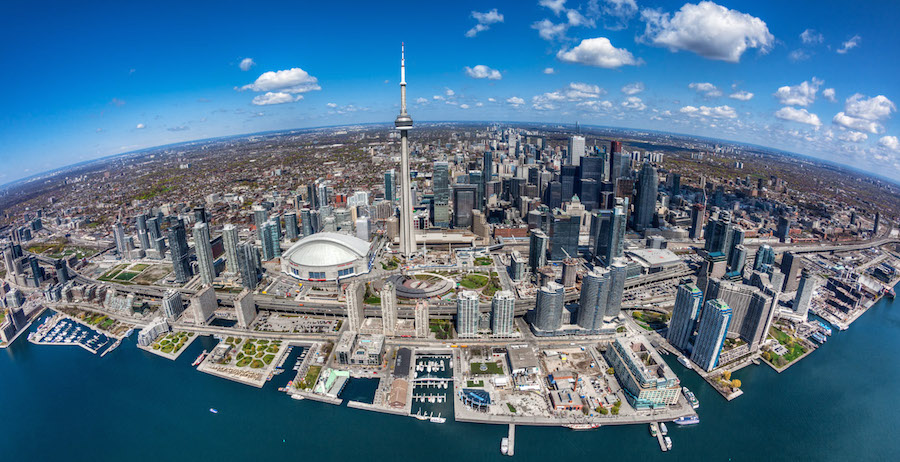
Canada’s largest city combines all the best the country has to offer – a diverse community, vibrant cultural scene and nightlife, stunning natural surrounds, and of course world-leading universities.
Rival Canadian city Montréal retains a slight lead, ranking one place higher than Toronto in the QS Best Student Cities 2015. But Toronto continues to lay claim to having the country’s highest ranked university. In the QS World University Rankings® 2014/15, the University of Toronto is placed 20th in the world, while Montréal’s McGill University follows one place behind.
As well as being closely matched in the higher education space, the two cities are also close competitors for the title of Canada’s “cultural capital”. Toronto boasts booming art, fashion, creative and foodie scenes, and an impressive concentration of creative types. It also gets the highest overall score in the QS Best Student Cities’ “desirability” category, and ranks fourth out of 140 cities in The Economist’s Global Liveability Report.
8. Montréal
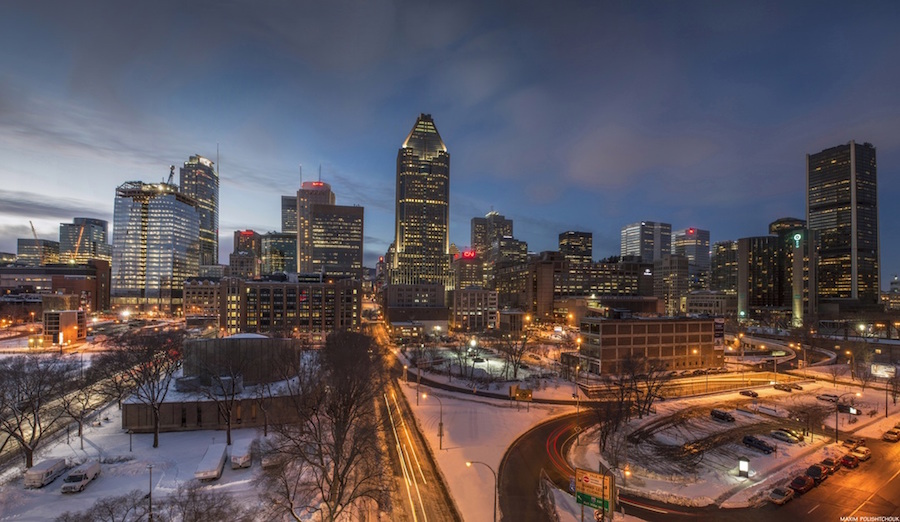
Home to several of Canada‘s highest ranking institutions, including McGill University (currently ranked 21st in the world and 2nd in Canada), Montréal has been dubbed Canada’s cultural capital, and one of the world’s most livable cities. In the QS Best Student Cities 2015, Montréal proves itself to be one of the world’s best cities for students, moving up from 9th to 8th place, behind Tokyo.
As a French-speaking city in a largely English-speaking nation that has experienced mass immigration from all over the world in the past decades, Montréal has a distinctly hybrid culture. The city boasts a world-renowned indie music scene and is the site of several major international festivals, including the Montréal International Jazz Festival and the world’s largest comedy festival, Just for Laughs.
With a relatively large and diverse student population, Montréal gets its strongest score in the “student mix” category of the Best Student Cities index. Its weakest point is affordability – but in fact it beats most of the other top 10 student cities on this indicator, barring Asia’s leading cities Hong Kong and Tokyo.
7. Tokyo
For those who want to study amidst the hustle and bustle of the big city, they don’t come much bigger and busier than Tokyo, one of the world’s most populous urban areas.
Such is the mind-blowing scale of the Japanese capital that even with 10 internationally ranked universities, it still has one of the lowest proportionate student populations of any city in the top 50 of the QS Best Student Cities. Tokyo, then, is a city for those who favor total immersion in local culture rather than living in a “student bubble”.
The upshot of Tokyo’s gargantuan size is that it offers one of the most varied and cosmopolitan living environments on earth. As one of the world’s three leading financial epicenters, alongside New York and London, it also provides enviable professional and internship opportunities, and scores highly for both domestic and international employer activity.
Tokyo climbs 10 places in the 2015 edition of the QS Best Student Cities; alongside a high rating from graduate employers, it scores notably well in the “desirability” category, which considers factors such as safety, quality of living, tolerance, transparency and pollution.
6. Boston
Boston is certainly one of the world’s best-known academic hubs, and in the QS Best Student Cities 2015 it ranks as the world’s sixth best city for students, moving up two places from the previous year.
Boston’s leading position is bolstered by universities located within the Greater Boston area, in the neighbouring town of Cambridge – of which the most famous are MIT and Harvard University, consistently ranked among the top five universities in the world. In the QS World University Rankings® 2014/15, the Massachusetts Institute of Technology (MIT) held onto its place as the world’s number one university, while Ivy League member Harvard University remains just slightly behind in 4th.
While these two institutions have no shortage of attractions of their own, the proximity of Boston certainly doesn’t take away from their appeal. As one of the most historic cities in the US, Boston combines the hustle and bustle of a major metropolis and a happening arts, politics and culture scene, with an abundance of green open space and the stunning fall colors for which Massachusetts and the region of New England are famous. In addition to the academic might of MIT and Harvard, Boston is home to five more internationally ranked universities, a cluster of intellectual endeavour which has earned it the nickname “the Athens of America”.
Thanks in part to the two showstoppers, MIT and Harvard, Boston has a great score in the “university rankings” category of this year’s Best Student Cities index. It’s also tied with London as one of the two top-scorers in the “employer activity” category, reflecting the strong international reputation of its institutions among graduate employers.
The city’s weakest score, predictably, is for affordability, with fees at top US universities exceeding US$40,000 per year. But in fact both MIT and Harvard operate need-blind admission policies for all applicants, including international students, and generous financial aid packages mean Boston’s universities may not be as out-of-reach as they at first appear.
5. Hong Kong
One of the world’s leading financial centers and most densely populated pieces of land, Hong Kong has long been regarded as a meeting point for different cultures, with a truly global outlook and atmosphere.
Climbing two places in the 2015 edition of the QS Best Student Cities index, Hong Kong is now Asia’s leading entry, with Tokyo following in 7th place. It owes its high position to its relatively diverse student community, high rating from graduate employers, and a strong overall score in the “desirability” category. For instance, it’s ranked 8th (out of 372) in the Number safety index, and 31st (out of 140) in The Economist’s 2014 Global Liveability Ranking.
Hong Kong boasts many of the leading universities in Asia; the University of Hong Kong, Hong Kong University of Science and Technology and the Chinese University of Hong Kong are all ranked among the world’s top 50, with four more Hong Kong institutions featured in the QS World University Rankings® 2014/15.
As well as a density of higher education excellence which only a few other cities can beat, Hong Kong also has one of the world’s most internationally diverse student populations, so those who choose to study abroad here will be in good company.
In terms of affordability, the picture is a little more complex. Rent is exorbitantly expensive, but general living expenses such as eating out and transport remain low. International tuition fees are somewhere in the mid-range – much lower than studying in the US, for example, but higher than those charged in Western European countries such as France or Germany.
If you value peace, quiet and personal space, then life in this packed and fast-paced metropolis might be a little daunting, but for those who really want to experience city life in its most heightened form, Hong Kong is without doubt one of the most dynamic and diverse study destinations around.
4. Sydney
Welcome to Sydney, home of five universities featured within the QS World University Rankings® 2014/15 and also one of the best student cities in the world, according to the latest QS Best Student Cities index.
Although overtaken by Melbourne as Australia’s leading student city this year, Sydney holds its position of 4th best city for students in the world. The reasons for this are numerous, but largely due to the remarkable scores the city gets for “student mix” (student diversity, social inclusion and tolerance), “desirability” (quality of life) and “employer activity” (based on employers’ perspectives on the world’s best places to recruit from). The only factor that Sydney receives a lower score for is affordability, due to the nation’s high tuition fees and substantial living costs. But it’s easy to see why so many international students find ways to cover the costs; the combination of education and lifestyle Sydney offers are certainly a compelling mix.
As well as being Australia’s financial and economic hub, Sydney is known for the stunning panorama of its harbor, iconic opera house, large selection of green spaces within the city, and proximity to beaches which are among the most paradisiacal not just in Australia but anywhere in the world. It’s been ranked one of the 10 most livable cities on the planet by both Mercer and The Economist.
Sydney currently has five universities included in the QS World University Rankings®, led by the University of Sydney at 37th in the world and the University of New South Wales at 48th.
3. London
Perhaps only Boston can rival London’s credentials as a nerve-center of global academia, with the city’s Imperial College London now ranked joint second in the world (alongside the University of Cambridge) and UCL (University College London) sharing fifth place with the University of Cambridge.
King’s College London is also within the global top 20, the London School of Economics and Political Science (LSE) is ranked second in the world for social sciences, and a whole host of other prestigious specialist and comprehensive institutes are scattered throughout the metropolis – along with world-leading facilities such as The British Library, which constitutes one of the most extensive and significant collections of books and manuscripts in the world.
Yet the UK’s capital also offers far more to students. As well as being an academic hub, it’s one of the world’s great centers of culture and creativity, famed for its museums, arts scene, nightlife and diversity.
London is also one of the world’s most important financial centers, making it an attractive choice for those with an eye on corporate careers, as well as being among the world’s leading places to find work in media and the arts, and a host of other industries.
For many students, both domestic and international, the main sticking point is affordability. For international students, tuition fees at London’s top universities approach those charged in the US, while home and EU undergraduate students are feeling the impact of major fee increases implemented in 2012. Meanwhile rent and living costs are significantly higher in London compared to the rest of the UK.
Yet thanks to the concentration of world-class universities and facilities, the professional and social opportunities, and a mind-boggling cultural confluence that mixes the corporate and the alternative, the historical and the cutting-edge, studying in London may well be worth every penny.
2. Melbourne
Jumping three places in this year’s QS Best Student Cities ranking, Melbourne overtakes Sydney to become the leading student city in Australia, and second in the world.
There are seven universities in Melbourne featured within the QS World University Rankings® 2014/15, the highest-ranked of which is the University of Melbourne at 33rd in the world – second only to Australian National University on the Australian leaderboard. To compare the top two universities in Melbourne on factors such as subject strengths and tuition fees, visit this article.
But why study in Melbourne? Known as Australia’s cultural capital, Melbourne has been repeatedly ranked as one of the world’s most livable cities, and is full of all the attractions that make the Australian lifestyle so appealing – including beautiful beaches, nightlife and a fair proportion of sunny days. If you’re a genuine culture sponge, you’ll be pleased to know that Melbourne’s range of museums is world class and the city’s cultural calendar is full all year round. If you’re into comedy or live music, Melbourne has much to entertain you, from world-famous annual comedy festivals to grungy gig venues packed with students looking for a good time. To wind down, the city offers cool rooftop bars, chic cafés and tasty restaurants serving world cuisine.
Within the QS Best Student Cities ranking, Melbourne boasts the highest score in the “student mix” category, which is calculated based on the relative size and diversity of each city’s student population, as well as levels of social inclusion and tolerance. Melbourne also scores very highly for “employer activity” and “desirability”, categories which respectively look at the city’s institutions from the point of view of employers and the overall quality of living to be had in the city.
The only factor that Australian cities tend to stumble on is affordability, due to relatively high tuition fees and high living costs, and this applies to Melbourne alongside its country-mates. But for high standards of living and incredible natural surroundings, Melbourne is a tough city to beat.
1. Paris
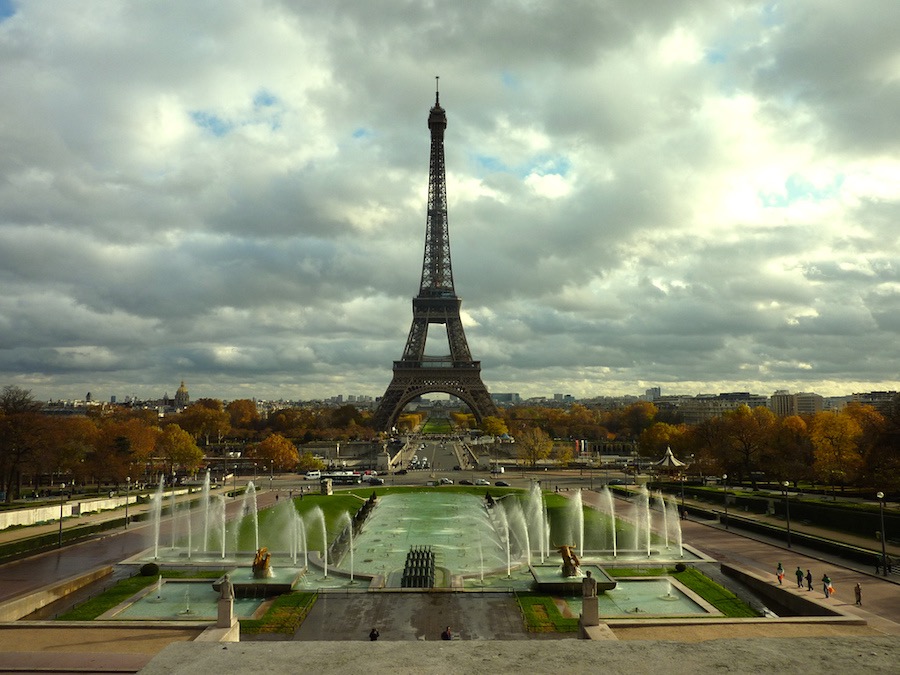
Paris has no less than 17 universities assessed within the QS World University Rankings® 2014/15 – comfortably more world-leading institutions than any other city on the planet except for London, which has 18.
And while Paris does have a reputation for being an expensive place to live, relatively low tuition fees mean that for students, it actually represents a more affordable destination when compared to many other popular student cities – though of course enjoying all the delights of life in this iconic European capital is certainly likely to demand quite a substantial student budget.
Parisian graduates are targeted by a vast range of employers across the continent. And elite Parisian universities and specialized schools such as ENS Paris, Ecole Polytechnique ParisTech, Sciences Po Paris, Université Paris-Sorbonne (ParisIV) and HEC Paris have produced some of the most important philosophers, theorists, scientists, politicians, business leaders and mathematicians of the last 100 years, along with seminal movements in literature, film and art.
Students in Paris often enjoy extensive access to leading academics, with top universities in Paris providing small class sizes and intensive teaching, despite the low fees. Paris is frequently rated as one of the most livable cities in Europe, and is ranked 16th out of 140 cities in The Economist’s 2014 Global Liveability Ranking.
But finally, all the measurements used to create the QS Best Student Cities still don’t capture the real appeal of studying in Paris – one of the world’s most historic, culturally vital and beautiful cities.
This feature originally appeared in Top Universities.












